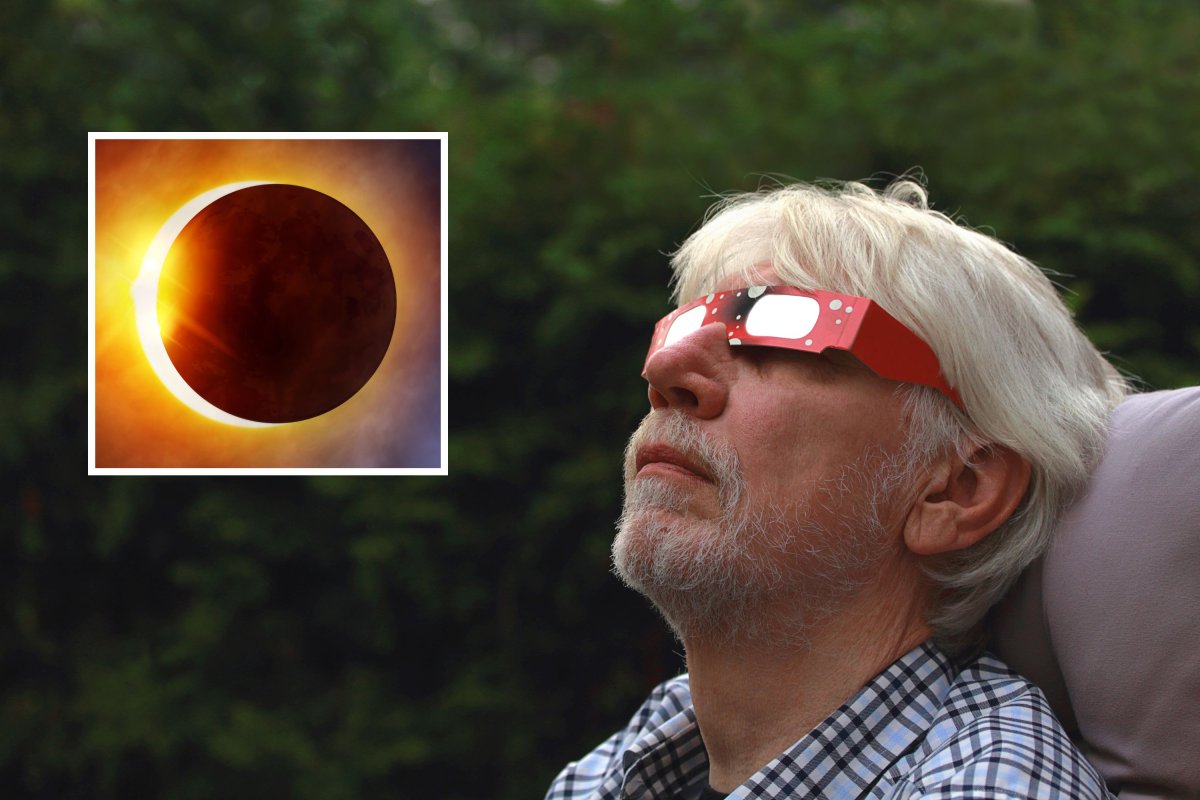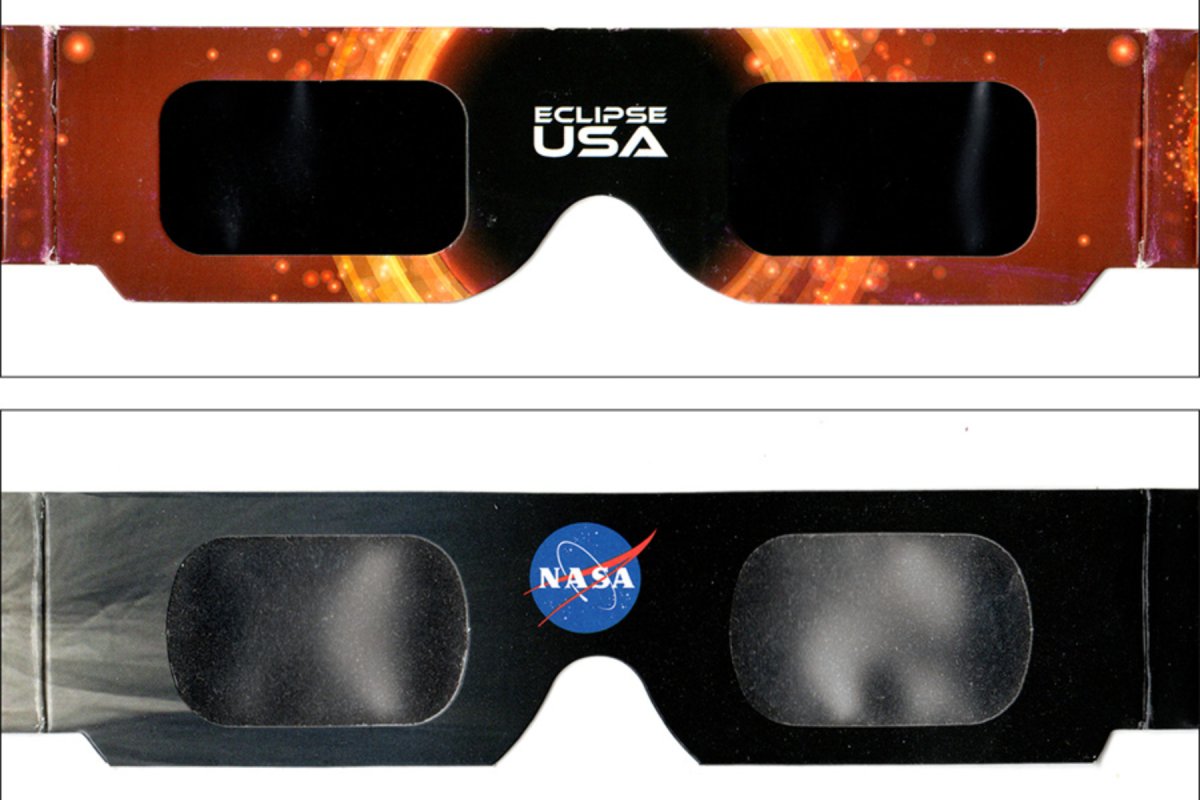Americans stocking up on special glasses in preparation for the upcoming total solar eclipse have been warned to beware counterfeit and fake products.
In a March 22 statement, the American Astronomical Society, a nongovernmental organization, announced that there may be several unsafe eclipse glasses and viewers on sale, which could put observers at risk of eye damage if used.
Star-gazers hoping to catch a glimpse of the April 8 totality, which is expected to be visible in 13 U.S. states, are therefore urged to make sure the products they buy to watch the eclipse are legitimate and safe.

Eclipse glasses should have special filters that block out harmful ultraviolet and infrared radiation from the sun, which can cause damage to the structures of the eye. Such filters may not be present in fakes.
"Filters that provide safe, comfortable views of the Sun generally transmit between 1 part in 100,000 (0.001 percent) and 1 part in 2,000,000 (0.00005 percent) of its visible light," said Rick Fienberg, the project manager of the AAS Solar Eclipse Task Force in the American Astronomical Society's statement. "Solar filters are at least 1,000 times darker than even the darkest regular sunglasses."
In its statement, AAS made a distinction between fake glasses and counterfeit ones. Counterfeits, the organization said, are glasses made by one manufacturer but fraudulently printed with the name of a different manufacturer, such as American Paper Optics, a major manufacturer of eclipse glasses in the U.S. While some counterfeits may be safe, fakes are always unsafe and will not sufficiently protect a wearer's eyes from the sun.
Looking at the sun before and after an eclipse without appropriate protection can cause sunburn on the cornea—a condition known as ultraviolet keratitis—and even a hole being burned in the retina of the eye, known as solar retinopathy.
"There's no way to tell just by looking at them whether eclipse glasses are genuinely safe," Fienberg said, "but it's easy to tell if they are not safe."
Eclipse observers can test whether their glasses are fake and unsafe before the solar event by putting them on indoors. If they are safe, then users shouldn't be able to see much through them except for very bright lights, "which should appear very faint through the glasses," AAS said.
If users can see details in the room, such as furniture or picture frames, the glasses may not be dark enough to safely protect their eyes during the eclipse. Further tests involve wearing the glasses outside—which should again reveal only very bright lights, such as the sun's reflection in a water body or window—and briefly glancing at the sun itself, which should appear "comfortably bright," the statement continued.
The AAS warned that even if the glasses passed all the tests, viewers should be careful not to stare at the sun for too long, just in case.
"Staring at a partial solar eclipse for more than a few seconds at a time, even through perfectly safe solar viewers, isn't much fun anyway," Fienberg said. "It's almost impossible to detect the Moon's motion across the Sun in real time except with magnification, and you must never look through magnifying optics while wearing eclipse glasses."

The AAS has compiled a list of over 100 vendors that it has confirmed are selling glasses safe for purchase. Vendors not on this list aren't necessarily unsafe but may need additional at-home testing to ensure their protection level.
Alternatively, you could watch the solar eclipse indirectly, using a pinhole camera or even via livestream. Pinhole cameras can be made at home, allowing you to project the eclipse onto a paper screen.
Do you have a tip on a science story that Newsweek should be covering? Do you have a question about eclipse glasses? Let us know via science@newsweek.com.
Uncommon Knowledge
Newsweek is committed to challenging conventional wisdom and finding connections in the search for common ground.
Newsweek is committed to challenging conventional wisdom and finding connections in the search for common ground.
About the writer
Jess Thomson is a Newsweek Science Reporter based in London UK. Her focus is reporting on science, technology and healthcare. ... Read more
To read how Newsweek uses AI as a newsroom tool, Click here.








